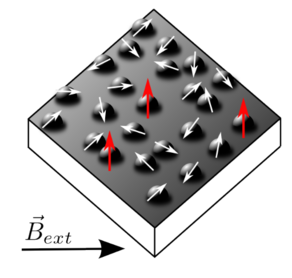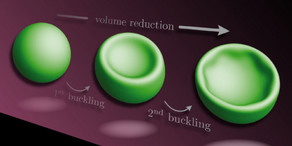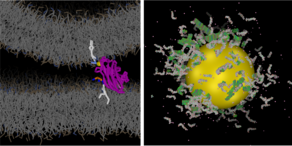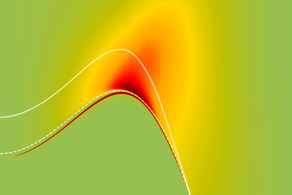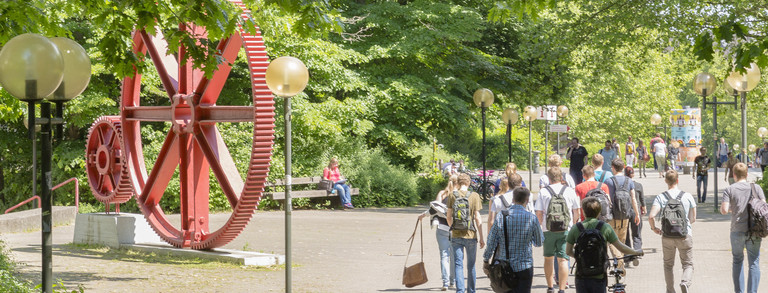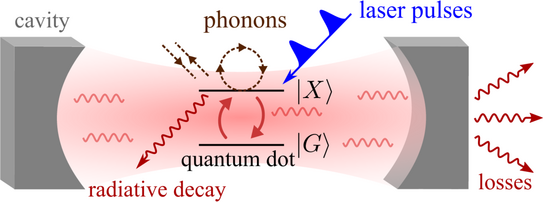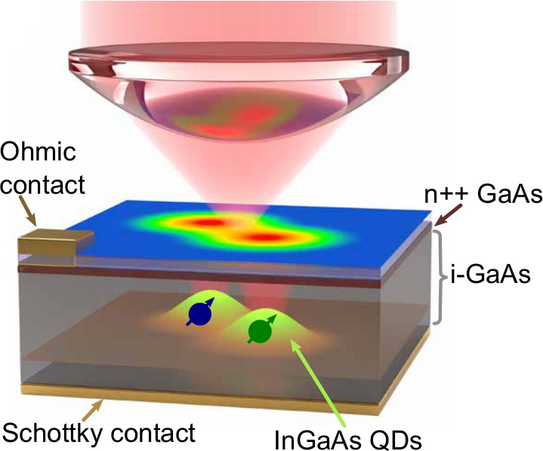Research Topics
Most quantum technologies are based on quantized states. For instance, many different physical systems on nanometer scale act like 2- or few-level systems, which can be employed as qubits for quantum computing. Furthermore, transitions between discrete energy levels result in the emission of nonclassical states of light, which are useful for quantum communication, quantum metrology, and optical quantum information processing. However, quantum systems inevitably interact with their local environment. This leads to loss and destruction of quantum coherences, which are necessary for quantum technologies.
The focus of this research group is a realistic description of environment effects on such open quantum systems. This facilitates the design of quantum devices and the development of control protocols, which make the devices robust against environment influences or even use the coupling to the environment to one's advantage, such as in phonon-assisted state preparation protocols.
To this end, we develop new methods that account for environment influences beyond conventional (perturbative or Born-Markov) approximations. One of our current approaches, so-called process tensors [1], combines path integrals with tensor network methods, and delivers a numerically exact description of open quantum systems while being very generally applicable. This enables investigations of complex research questions, e.g. with respect to the dynamics of multilevel systems coupled to multiple different environments acting on different time scales. This is crucial for the description of quantum networks and also for superradiance and other collective effects in real solid-state quantum emitter systems [2].

